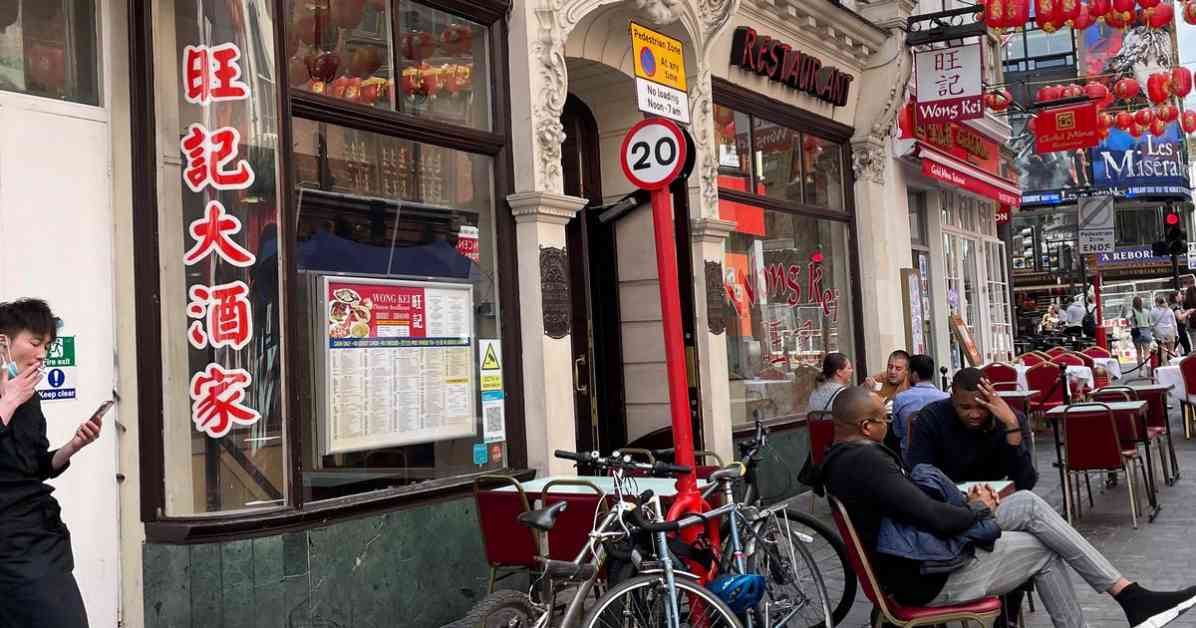London’s infamous restaurant, Wong Kei in Chinatown, has recently been hit with a hefty fine of £42,000 for serious breaches of food hygiene standards. The restaurant, known for its reputation as the ‘rudest’ eatery in the city, was found to have a disturbing infestation of cockroaches and dead mice in its kitchen during a routine inspection by Westminster City Council inspectors.
Gosing Limited, the operators of Wong Kei, pleaded guilty to four offences of failing to comply with EU food safety and hygiene regulations. The company was fined a total of £31,503.25 at Westminster Magistrates’ Court on September 4. The restaurant was also issued two hygiene improvement notices and instructed to enhance its business standards following the inspection in 2022 when it was under the management of Jexstar Limited.
During the inspection, council officers were informed that the restaurant’s director, Daniel Luc, would be leaving the company. However, a subsequent visit in May 2023 revealed that Mr. Luc still retained overall control of the business under the new management of Gosing Limited. Inspectors uncovered a range of food hygiene offences at Wong Kei, including issues with mice and cockroaches, cross-contamination of raw and precooked food, and unsanitary hygiene practices by staff.
Images captured during the inspection depicted a dead cockroach underneath wiring and a buildup of dead cockroaches in a trap, highlighting the extent of the infestation. Mr. Luc was individually fined £10,803.25 for pleading guilty to all the offences, bringing the total fines imposed on Wong Kei to £42,306.50. The restaurant was notorious for its rude staff who often played up to the name by deliberately being impolite to customers as part of the dining experience.
In a separate case, the director of Little Sicily, an Italian-themed restaurant, Magdi Assif, faced charges of three food hygiene offences and received penalties totaling £20,176.50. Environmental health officers discovered evidence of mice droppings in the kitchen and storage areas, as well as moldy food in the fridge. They also observed sinks blocked by lettuce heads, grease dripping from cookers, and mice droppings on the ground, indicating a severe lack of hygiene practices at the establishment.
The court heard how inspectors witnessed cockroaches scuttling off after moving three chillers at Little Sicily, prompting a temporary closure notice to be issued in June of the previous year. This closure marked the second time within six months that the restaurant had been shut down due to food hygiene violations. Councillor Aicha Less, deputy leader and cabinet member for children and public protection, emphasized the council’s commitment to ensuring the safety of consumers across the borough.
These fines serve as a reminder that Westminster Council is dedicated to upholding food safety standards and holding businesses accountable for any breaches that put consumers at risk. Food safety officers will continue to monitor and inspect all food-preparing and food-serving establishments to ensure compliance with laws and regulations. Councillor Less stressed the importance of supporting businesses that invest in compliance while holding accountable those who engage in unscrupulous practices that endanger public health.
A staff member at Wong Kei declined to comment on the recent fines, while the owner of Little Sicily has yet to respond to requests for a statement. The fines imposed on both establishments highlight the council’s commitment to safeguarding public health and ensuring that food-serving businesses adhere to strict hygiene standards to protect consumers from potential harm.
In conclusion, the recent fines imposed on Wong Kei and Little Sicily serve as a stark reminder of the importance of maintaining high food hygiene standards in restaurants. It is crucial for businesses to prioritize cleanliness and compliance with regulations to ensure the safety and well-being of their customers. By holding establishments accountable for breaches of food safety standards, authorities can help prevent potential health risks and uphold the integrity of the food service industry.












